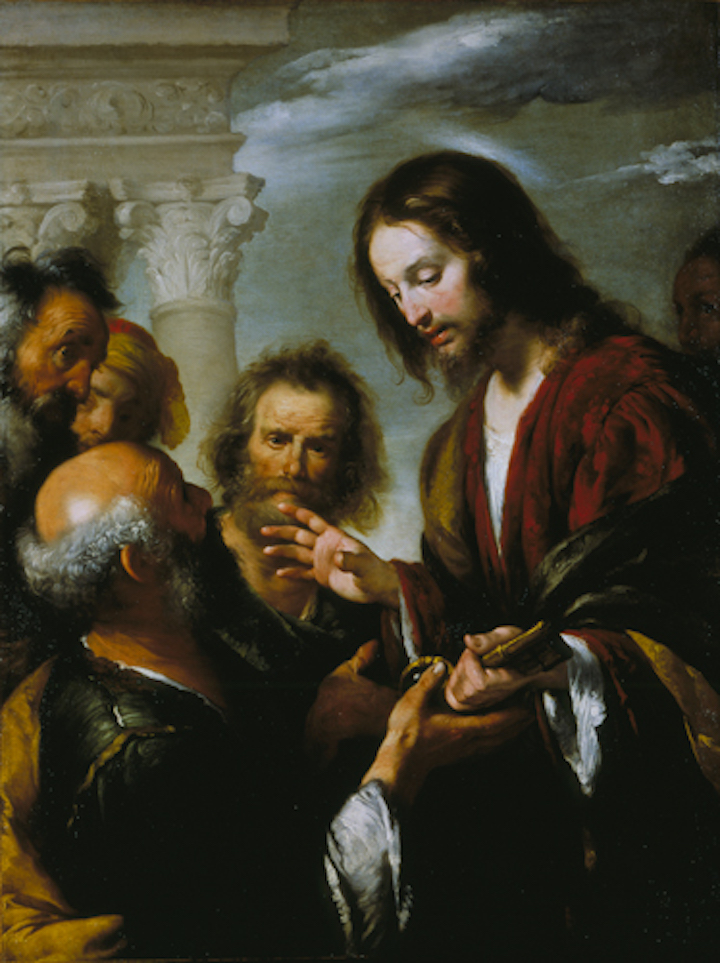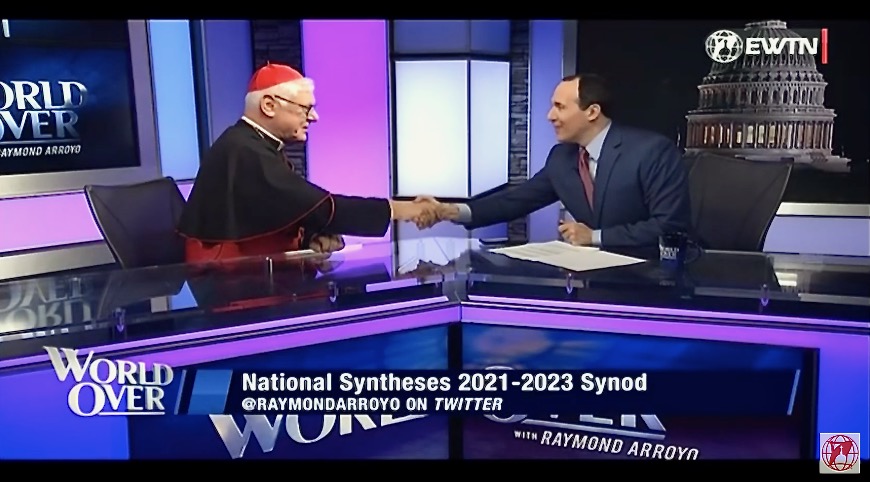Many people have been puzzled by the Synod on Synodality – the “walking together” that seems to have some figures in the Vatican (and their immediate allies) highly enthused, but almost no one else. Even many of the Cardinals assembled from every continent in consistory a month ago at the Vatican were still asking what “synodality” means, after over a year of “national level” consultations. We may now have some answers in remarks by two, very different, Cardinals.
Cardinal Mario Grech – secretary general of the Synod of Bishops – recently explained to the Church’s Leadership Roundtable that when it comes to controversies such as divorced and remarried Catholics being given Communion or same-sex couples receiving a blessing:
What has the Church to fear if these two groups within the faithful are given the opportunity to express their intimate sense of spiritual realities which they experience? Might this be an opportunity for the Church, to listen to the Holy Spirit, speaking through them also.
He has also said that, whether Latin Mass goers or LGBTQ+, “everybody should be listened to” and “nobody is excluded.”
Of course, as this attempt at looking fair and balanced makes clear, everybody is not really being “listened” to. Catholics who attend the Traditional Latin Mass – and are actually faithful – have been roughly treated, some might argue excluded. LGBTQ+ “Catholics,” meanwhile, have been treated with kid gloves, and – to be (unbrutally) frank – can only by an abuse of terms be deemed “faithful.”
The Cardinal has, further, put himself in a perilous position. It’s only prudent to be very cautious about even suggesting that the Holy Spirit may be “speaking” – especially when He suddenly seems to have reversed course. That maybe He didn’t mean what He actually said way back at the beginning about “male and female He created them.” (Earlier this year, Cardinal Jean-Claude Hollerich, appointed by Pope Francis to be the Relator General for the Synod on Synodality, has said about the Church’s teaching on homosexuality, “I think it’s about time we did a fundamental revision of the doctrine here.”)
It bears repeating that if the whole Jewish-Christian tradition was mistaken about one of the earliest Biblical statements of what we human beings are – prominent figures such as Fr. James Martin S.J. have raised that possibility – almost everything is then up for grabs, including whether God has spoken in Scripture and Tradition. Sadly, as a result, it’s even led many these days, who find their identities in sexuality, to wonder whether He even exists.
So it was quite heartening that Cardinal Gerhard Mueller, former Prefect of the Congregation for the Doctrine of the Faith – the Vatican’s doctrinal office – warned last week of a “hostile takeover” now going on within the Church Herself, which must be resisted. (You can watch the Cardinal’s interview with Raymond Arroyo on EWTN’s “The World Over” and my own comments on his remarks in the same episode by clicking here. There’s also a rough transcript at the National Catholic Register – here.)
Cardinal Mueller is a weighty theologian and unlike many – inside and outside the Faith – who would like to let contemporary obsessions reshape the Church, he insists that the “listening” that must always first take place is to God, especially as he has revealed Himself in Jesus Christ.

By contrast, he said, the approach that Cardinal Grech and others take presents a pattern familiar from Church history:
That is a hermeneutic [way of interpretation] of the old cultural Protestantism; and. . .modernism: That is, the individual experience, as the same level as objective revelation of God. And God is only a wall to you, [on] which you can project your [own] ideas, and to make certain populism in the Church. . . .But it is obvious that is absolutely against the Catholic doctrine. We have Revelation of God in Jesus Christ. And it is definitely closed and finished in Jesus Christ. . . .This is absolutely clear: that Jesus has spoken about the indissolubility of matrimony. And how is it possible that Cardinal Grech is more intelligent than Jesus Christ, where he takes his authority to relativize, to subvert [what is] of God?
This is the whole crux of the matter, and not only for Cardinal Grech. The synodal “listening” is presented as a pastoral approach to “accompanying” the “faithful.” But as we know from recent history in secular contexts, all this is really a prelude to surrender. Dissidents don’t feel “heard,” nor do they moderate, through “dialogue.” As has been proven over and over, it only emboldens them.
In the interview, Raymond Arroyo put a direct and difficult question to the Cardinal: Why do you believe the pope is allowing this?
I cannot understand it. I must say it openly, because the definition of the pope is, and [based in] the Vatican Council and also the history of Catholic theology, he has to guarantee the truth of the Gospel and the unity of all the bishops, and in the Church, in the revealed truth.
Popes also, of course, have to consider things that are happening at any given moment in the world. But the Cardinal’s response expresses the core understanding – in simple and concrete terms – of what our theology and Vatican II itself have defined as the pope’s role.
By contrast, we have Cardinal Grech – a canon lawyer, not a theologian – delivering this rodomontade, “A correct reception of the council’s ecclesiology is activating such fruitful processes as to open up scenarios that not even the council had imagined, and in which the actions of the Spirit that guides the church is made manifest.”
But what’s to fear?
It’s not hard for us, almost sixty years after the Council, to imagine where “activating” these “scenarios” and “fruitful processes” will lead.
Cardinal Mueller deserves the final word about what the leaders of the “synodal process” have created, “They have the intention to substitute their own subjective ideas, against a revealed reality of Jesus Christ. . .the [path to the] destruction of the Catholic Church.”

*Image: Christ’s Charge to St. Peter by Bernardo Strozzi, c. 1635-1637 [Chazen Museum of Art, Madison, WI]
You may also enjoy:
Bob Royal’s Who Needs Synodality?
Stephen P. White’s Synodality Is What You Make of It















